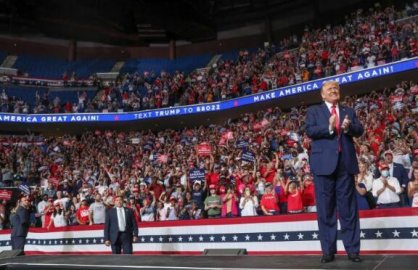Author: Chen Lino
Following the Hong Kong Human Rights Democratic Act at the end of last year, the United States recently passed the Hong Kong Autonomous Act. Trump also signed an administrative order at the same time to terminate the United States' special treatment for Hong Kong.
The problem is that Hong Kong's stock markets and property markets did not have a special response, nor did they see signs of large -scale capital outflows. Hong Kong stocks have fallen in the past few days. This is just a profit after the rise of last week.In other words, the market that is most sensitive to risks believes that Trump is just a futrious momentum.
After all, the bill is just a bunch of words, depending on how to execute and the consequences of execution.If the United States can easily hurt Hong Kong through the bill, and return to 23 years, the United States can have been done with administrative orders for a long time, and it is not necessary to wait until now to pass a series of bills.
As one of the three major financial centers in the world, Hong Kong has been deeply embedded in the global financial and trade network through the successive operations of the United Kingdom and China for half a century. Hong Kong's legal system is closely connected to the international banking system, and it is connected to the United States system.If it really implements specific measures to combat Hong Kong's special status, the huge interests of the United States in Hong Kong will also be damaged.
Each year, hundreds of billions of dollars have entered mainland China through Hong Kong, and Hong Kong is also the main fundraising place for mainland Chinese companies. At the same time, Hong Kong is also the main agricultural product and financial trading market in the United States. 80,000 Americans work in Hong Kong to work in Hong Kong.The United States earns nearly $ 50 billion from Hong Kong each year.Hong Kong is important to China and it is also important to the United States.
It is not a gift to win different treatment from mainland China around the world, but a kind of mutual benefit of both sides, which mainly builds a good condition based on Hong Kong itself.
Of course, it is undeniable that the influence monitoring in the United States has passed the Hong Kong -related bill, which has continued to abolish the status of Hong Kong's independent customs areas.Hong Kong's image will definitely be damaged.This is why the Hong Kong government commissioned a public relations company in the Middle East earlier to sell Hong Kong around the world.
The passing of the Hong Kong Act will undoubtedly increase the operating costs of some Hong Kong financial institutions. They must make preparations and preparations for certain provisions of this bill.Some companies engaged in imported technology products will also receive elbows to a certain extent, but in fact, the impact is very limited, because the United States has strictly strictly closed high -tech products entering Hong Kong before Trump came to power.
Recently, there are also media rumors that the United States will not hesitate to block Hong Kong's contact exchange rate operation and prevent China from redeeming the US dollar.The new crown pneumonia has caused the US economy to fall in trouble. The Federal Reserve ’s Da India’ s US dollar resists the economy, leading to a wealth of wealth, and the US dollar exchange rate is weak. At this moment, if the United States prohibits the exchange of US dollars, the US dollar functions and markets will shrink sharply.The influence will also decline, which is not good for the United States.
Multiple bills involved in Hong Kong have so far, it is just a small rain of thunder.Hong Kong people do not believe that the United States really cares about Hong Kong's democracy and human rights, especially this year is the year of the United States.Everyone can see that Trump's intention is not wine, but he tries to pass the Hong Kong -related bills in the way of exporting to domestic sales, and to shape his more tough image than Biden in the minds of voters.
(The author is a senior media person in Hong Kong)


